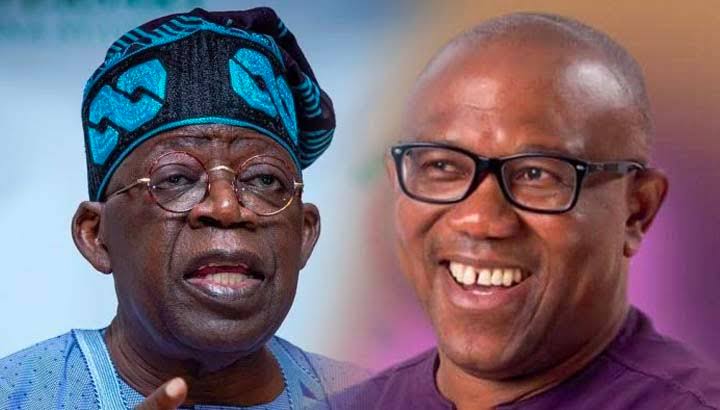
By Chuks Nwachuku
FOR THE RECORD – WHO CAME SECOND?
Relevant Provisions
134. (1) A candidate for an election to the office of President shall be deemed to have be been duly elected, where, there being only two candidates for the election –
(a) he has the majority of votes cast at the election; and
(b) he has not less than one-quarter of the votes cast at the election in each of at least two-thirds of all the States in the Federation and the Federal Capital Territory, Abuja.
(2) A candidate for an election to the office of President shall be deemed to have been duly elected where, there being more than two candidates for the election-
(a) he has the highest number of votes cast at the election; and
(b) he has not less than one-quarter of the votes cast at the election each of at least two-thirds of all the States in the Federation and the Federal Capital Territory, Abuja.
(3) In a default of a candidate duly elected in accordance with subsection (2) of this section their shall be a second election in accordance with subsection (4) of this section at which the only candidate shall be –
(a) the candidate who scored the highest number of votes at any election held in accordance with the said subsection (2) of this section; and
(b) one among the remaining candidates who has a majority of votes in the highest number of States, so however that where there are more than one candidate with majority of votes in the highest number of States, the candidate among them with the highest total of votes cast at the election shall be the second candidate for the election.
(4) In default of a candidate duly elected under the foregoing subsections, the Independent National Electoral Commission shall within seven days of the result of the election held under the said subsections, arrange for an election between the two candidates and a candidate at such election shall be deemed elected to the office of President if –
(a) he has a majority of votes cast at the election; and
(b) he has not less than one-quarter of the votes cast at the election in each of at least two-thirds of all the States in the Federation and the Federal Capital Territory, Abuja
(5) In default of a candidate duly elected under subsection (4) of this section, the Independent National Electoral Commission shall, within seven days of the result of the election held under the aforesaid subsection (4), arrange for another election between the two candidates to which the subsection relates and a candidate at such election shall be deemed to have been duly elected to the office of President, if he has a majority of the votes cast at the election.
ANALYSIS
I really have Okechukwu Otukwu to thank for this revelation. Who came second according to the INEC officially declared results of the February 25th presidential election? In terms of highest votes garnered, Tinubu came first with 8.7m votes, Atiku followed with 6.9m votes and Obi came third with 6.1m votes. However, in the event that the Supreme Court upholds the letter and spirit of section 134(2)(b) of the Constitution and nullifies the declaration of Tinubu as President Elect for the reason of his failure to win 25% of the votes cast in the FCT, which of Atiku and Obi would go into a second ballot with him in accordance with section 134(3)(b) where, however, (though very much unlikely) the court upholds the numbers as declared?
Atiku secured the highest votes in 12 States. Obi did in 11 States and the FCT. Section 134(3)(b) does not reckon with the FCT.. For the determination of who should be considered to have come second to qualify to participate in a second election with the candidate with the highest number of votes in the first election, the provisions take into reckoning only the votes in the States. This is the reason that this section 134(3)(b) is unassailable evidence that proponents of the argument that the FCT is to be considered a State and therefore could be discountenanced to make it possible for a candidate like Tinubu, who did not win 25% of the votes cast in the FCT to be declared winner of the election on the first ballot, are misconceived, if not mischievous. These provisions show that the Constitution chose its words carefully and expressly made the FCT a factor in (2)(b) but omitted it in (3)(b). The circuitous argument based upon section 299 which seeks to nullify the express provision for the FCT in subsection (2)(b) with a provision meant to include the FCT where it is otherwise not provided for is plainly and directly absurd.
In another manner, subsection (3)(b) shows the deliberate choice of words to produce unusual outcomes. We would naturally expect that having come second in terms of highest number of votes, Atiku should be the runner up in the election. However, it is Peter Obi who is the runner up according to section 134(3)(b). The provisions regard as the runner up the person who secured the majority of votes in the highest number of States in the Federation. Thus, the provisions draw a distinction between “highest number ” and “majority”. The natural inclination is to consider both the same. The Constitution creates a huge world of difference between them. In subsection (3)(a) the candidate with the highest number of votes cast at the election is the first to qualify for the second ballot. In (3)(b), the runner up is not the candidate with the second highest number of votes at the election but rather the candidate with MAJORITY VOTES in the highest number of STATES.
For us to have an idea of what the Constitution means by majority votes, let us look at the use of the phrase in subsection (1)(a), (4)(a) and (5). In these provisions, the Constitution uses the phrases “majority votes” and “majority of votes” to describe the winner by number of votes in a ballot between the first candidate in the election and the runner up. Let us remember that in the first ballot, the phrase used to describe the winner where there are three or more candidates is “highest number” of votes. However, in subsection (1)(a) which deals with a situation where there are only two candidates, the phrase used is majority of votes. In , subsection (4)(a) and (5) which again deal with an election between only two candidates, the first and the runner up, the phrase “MAJORITY OF VOTES” is repeated. We are therefore left without doubts that majority votes is such number of votes that would be needed to win in an election between two candidates – in other words, over 50% of the votes cast at the election.
We return to the question, who therefore between Atiku and Obi deserves to go into a second ballot with Tinubu? Atiku won over 50% of the votes in just 3 States – Adamawa, Gombe and Yobe States. Obi won over 50% of the votes in 7 States – Edo, Anambra, Abia, Imo, Delta, Ebonyi and Enugu States. Obi is the runner up as according to the officially declared results and is the one qualified to go into a second ballot with Tinubu – should there be one.
Chuks Nwachuku.






